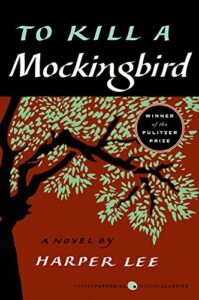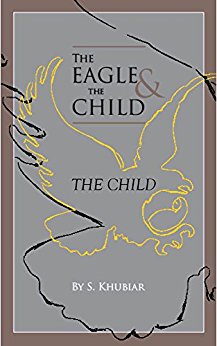The Child received a 4+ star review, making it an IndieReader Approved title.
Following find an interview with author S. Khubiar.
What is the name of the book and when was it published?
The name of the book is The Child, which is Book One of The Eagle and the Child trilogy. It was published in July 2016.
What’s the book’s first line?
“Dr. Sherrod supported her arm and worked it around from the elbow. She grimaced, more from the vulnerability of the position than pain, he was sure.”
What’s the book about? Give us the “pitch”.
A retired American-Israeli assassin, Shahla, quit wet work because she struggled with her conscience. Her back story unfolds throughout the trilogy, but as in life, sometimes one choice made in bitterness has lifetime repercussions. After a work injury, she finds love outside of her Jewish faith, which creates problems. Shahla was born to Persian Jewish parents, so the culture clash with her husband is as sharp as the religious one. A callback tips things over the edge, and she disappears for a while into the spook universe. Her husband is worried that she’s re-connected with someone for whom she cares. She surfaces to reunite with her husband after another bad injury, but a hit squad ruins their family Passover. Although the Iranian-backed squad is eliminated, it’s not over, which Shahla finds out after giving birth to her first, and only child.
In law enforcement and related fields, you see things that prevent you from being “normal.” In that respect, it was easy to give voice to Shahla’s thoughts and predict her actions that seem improbable to a civilian. Some things you can’t unsee or undo, and you feel as though you don’t deserve to be with normal people. Shahla meets us there with that fear, which I suspect is not isolated to those in the military, law enforcement, or clandestine services. In that sense, The Child gives the reader much more than a formulaic thriller. You know that Shahla is real because she is you.
What inspired you to write the book? A particular person? An event?
Work experience in federal law enforcement inspired me to write the book. It’s easier to convince a reader that what is fiction is true than what is true is fiction. Some of the people and events are real, but hopefully I’ve shifted the plot, settings, and cobbled the characters so that only the people closest to them would recognize them. It was a kind of therapy; grownups still have imaginary friends that we play with in our backyards. Those backyards are fiction.
What’s the main reason someone should really read this book?
The protagonist is Jewish, but her story is not the typical Holocaust-centered dilemma. Shahla’s Persian Jewish worldview drives much of the story. This story is most unique because the self-examination and transformation of the characters affects the reader through the process of being entertained. Reviewers have described it as “life-changing,” but it’s too violent to be preachy.
What’s the most distinctive thing about the main character? Who-real or fictional-would you say the character reminds you of?
The most distinctive thing about the main character Shahla is her stubborn grip on her Jewish faith in spite of “doing the worst.” I would say she’s a blend of Kellerman’s character of Rina Lazarus’ faith and Silva’s Gabriel Allon’s pragmatic killing style. Add in Naomi Ragen’s characters’ moral dilemmas with a pinch of De Mille’s John Corey’s sick humor, and you’ve got Shahla.
If they made your book into a movie, who would you like to see play the main character(s)?
Gal Gadot – Shahla; Mike Shouhed – Samuel; Scott Conant- Phillip
When did you first decide to become an author?
I’ve been writing for about twenty years as an academic, but The Eagle and the Child was my first attempt at fiction. I started working on it over ten years ago. I’m now retired and writing fiction under a pseudonym even though I still publish other works under my real name.
Is this the first book you’ve written?
It’s the first fiction work under the pen name S. Khubiar. I have fifteen other titles in print, but those works are on the academic side of the spectrum. My APA Manual of Style is falling apart.
What do you do for work when you’re not writing?
I’m retired from federal law enforcement, but I still contract as a subject matter expert and edit for other writers.
How much time do you generally spend on your writing?
At least five days per week, but only a fraction of that is fiction.
What’s the best and the hardest part of being an indie?
The best part of being an indie is retaining control over the process from beginning to end with no deadlines. The hardest part of being an indie is marketing. I’m writing under a pseudonym, so I can’t depend upon my non-fiction readers to prime the pump for sales or reviews.
What’s a great piece of advice that you can share with fellow indie authors?
Everyone has a great story, but not everyone is a great storyteller. There is wordcraft involved in telling a story, so if your story is great, but you haven’t mastered freshman-level English grammar, usage, and spelling, find a ghostwriter. Indie publishing is a part-time job with very low pay. I’ve learned a lot by simply following up on tips in Goodreads discussions. I’m a bit of a stalker that way; I’d rather save myself time and money by learning from someone else’s mistakes.
Would you go traditional if a publisher came calling? If so, why?
Sure. The same reason I went to an accredited college for my doctorate. It helps open doors if your work, contacts, and reputation are of high quality. I’ve written a quality work of fiction according to the reviews, but that doesn’t open the bookstore doors or generate a large number of clicks. I would also appreciate high-quality legacy editing because it’s hard to see problems in your own writing no matter how long it “cools off.”
Is there something in particular that motivates you (fame? fortune?)
I can do without fame, but a little extra retirement income never hurt anyone. Fiction fulfills the creative side and balances all the academic writing and editing that I do. Sometimes I just like it when someone says, “Hey, this is good!” And face it, writing fiction is fun.
Which writer, living or dead, do you most admire?
Harper Lee concealed morality within an engaging, timeless story that’s affected millions of people. Ethical thinking, symbol, and soul repair don’t have to be overt or boring. No one will ever forget Scout, Jem, Atticus, Mayella, or Tom Robinson. When I wrote the rape scenes in The Child, I tried to use Harper Lee’s restraint in describing an ugliness that has no restraint.
The horror and betrayal of domestic violence is disturbing enough without describing the act in gratuitous detail even if it is necessary to plot. I want you to hate the violence so badly that you’ll become a force against it. One reviewer said that because of these assaults, he “fell out,” with the story, but “at the peak of the story we made up and I loved it again.” That’s exactly what I wanted him to do.

Which book do you wish you could have written?


